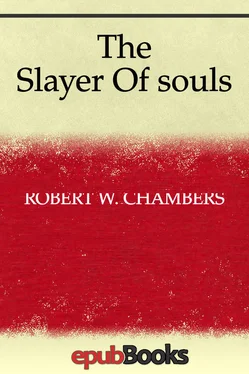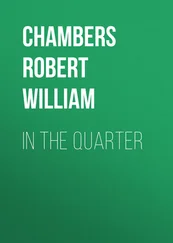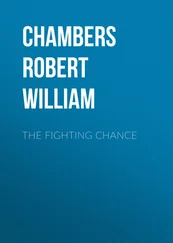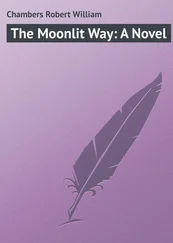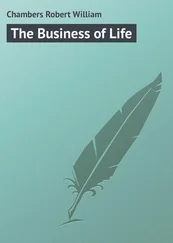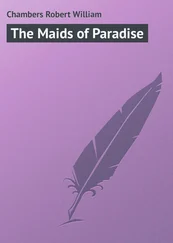"It—it would be very wonderful," she stammered, "—if our necessity should be–become our choice."
But that speech seemed to scare her and she fled, leaving her husband standing tense and upright in the middle of the room.
* * * * *
Their train on the New York Central Railroad left the Grand Central Terminal at one in the afternoon.
Cleves had made his arrangements by wire. They travelled lightly, carrying, except for the clothing they wore, only camping equipment for two.
It was raining in the Hudson valley; they rushed through the outlying towns and Po'keepsie in a summer downpour.
At Hudson the rain slackened. A golden mist enveloped Albany, through which the beautiful tower and façades along the river loomed, masking the huge and clumsy Capitol and the spires beyond.
At Schenectady, rifts overhead revealed glimpses of blue. At Amsterdam, where they descended from the train, the flag on the arsenal across the Mohawk flickered brilliantly in the sunny wind.
By telegraphic arrangement, behind the station waited a touring car driven by a trooper of State Constabulary, who, with his comrade, saluted smartly as Cleves and Tressa came up.
There was a brief, low–voiced conversation. Their camping outfit was stowed aboard, Tressa sprang into the tonneau followed by Cleves, and the car started swiftly up the inclined roadway, turned to the right across the railroad bridge, across the trolley tracks, and straight on up the steep hill paved with blocks of granite.
On the level road which traversed the ridge at last they speeded up, whizzed past the great hedged farm where racing horses are bred, rushing through the afternoon sunshine through the old–time Scotch settlements which once were outposts of the old New York frontier.
Nine miles out the macadam road ended. They veered to the left over a dirt road, through two hamlets; then turned to the right.
The landscape became rougher. To their left lay the long, low Maxon hills; behind them the Mayfield range stretched northward into the open jaws of the Adirondacks.
All around them were woods, now. Once a Gate House appeared ahead; and beyond it they crossed four bridges over a foaming, tumbling creek where Cleves caught glimpses of shadowy forms in amber–tinted pools—big yellow trout that sank unhurriedly out of sight among huge submerged boulders wet with spray.
The State trooper beside the chauffeur turned to Cleves, his purple tie whipping in the wind.
"Yonder is Glenwild, sir," he said.
It was a single house on the flank of a heavily forested hill. Deep below to the left the creek leaped two cataracts and went flashing out through a belt of cleared territory ablaze with late sunshine.
The car swung into the farm–yard, past the barn on the right, and continued on up a very rough trail.
"This is the road to the Ireland Vlaie," said the trooper. "It is possible for cars for another mile only."
Splendid spruce, pine, oak, maple, and hemlock fringed the swampy, uneven trail which was no more than a wide, rough vista cut through the forest.
And, as the trooper had said, a little more than a mile farther the trail became a tangle of bushes and swale; the car slowed down and stopped; and a man rose from where he was seated on a mossy log and came forward, his rifle balanced across the hollow of his left arm.
The man was Alek Selden.
* * * * *
It was long after dark and they were still travelling through pathless woods by the aid of their electric torches.
There was little underbrush; the forest of spruce and hemlock was first growth.
Cleves shined the trees but could discover no blazing, no trodden path.
In explanation, Selden said briefly that he had hunted the territory for years.
"But I don't begin to know it," he added. "There are vast and ugly regions of bog and swale where a sea of alders stretches to the horizon. There are desolate wastes of cat–briers and witch–hopple under leprous tangles of grey birches, where stealthy little brooks darkle deep under matted débris. Only wild things can travel such country.
"Then there are strange, slow–flowing creeks in the perpetual shadows of tamarack woods, where many a man has gone in never to come out."
"Why?" asked Tressa.
"Under the tender carpet of green cresses are shining black bogs set with tussock; and under the bog stretches quicksand,—and death."
"Do you know these places?" asked Cleves.
"No."
Cleves stepped forward to Tressa's side.
"Keep flashing the ground," he said harshly. "I don't want you to step into some hell–hole. I'm sorry I brought you, anyway."
"But I had to come," she said in a low voice.
Like the two men, she wore a grey flannel shirt, knickers, and spiral puttees.
They, however, carried rifles as well as packs; and the girl's pack was lighter.
They had halted by a swift, icy rivulet to eat, without building a fire. After that they crossed the Ireland Vlaie and the main creek, where remains of a shanty stood on the bluff above the right bank—the last sign of man.
Beyond lay the uncharted land, skimped and shirked entirely in certain regions by map–makers;—an unknown wilderness on the edges of which Selden had often camped when deer shooting.
It was along this edge he was leading them, now, to a lean–to which he had erected, and from which he had travelled in to Glenwild to use the superintendent's telephone to New York.
There seemed to be no animal life stirring in this forest; their torches illuminated no fiery orbs of dazed wild things surprised at gaze in the wilderness; no leaping furry form crossed their flashlights' fan–shaped radiance.
There were no nocturnal birds to be seen or heard, either: no bittern squawked from hidden sloughs; no herons howled; not an owl–note, not a whispering cry of a whippoorwill, not the sudden uncanny twitter of those little birds that become abruptly vocal after dark, interrupted the dense stillness of the forest.
And it was not until his electric torch glimmered repeatedly upon reaches of dusk–hidden bog that Cleves understood how Selden took his bearings—for the night was thick and there were no stars.
"Yes," said Selden tersely, "I'm trying to skirt the bog until I shine a peeled stick."
* * * * *
An hour later the peeled alder–stem glittered in the beam of the torches. In ten minutes something white caught the electric rays.
It was Selden's spare undershirt drying on a bush behind the lean–to.
"Can we have a fire?" asked Cleves, relieving his wife of her pack and striding into the open–faced camp.
"Yes, I'll fix it," replied Selden. "Are you all right, Mrs. Cleves?"
Tressa said: "Delightfully tired, thank you." And smiled faintly at her husband as he let go his own pack, knelt, and spread a blanket for his wife.
He remained there, kneeling, as she seated herself.
"Are you quite fit?" he asked bluntly. Yet, through his brusqueness her ear caught a vague undertone of something else—anxiety perhaps—perhaps tenderness. And her heart stirred deliciously in her breast.
He inflated a pillow for her; the firelight glimmered, brightened, spread glowing across her feet. She lay back with a slight sigh, relaxed.
Then, suddenly, the thrill of her husband's touch flooded her face with colour; but she lay motionless, one arm flung across her eyes, while he unrolled her puttees and unlaced her muddy shoes.
A heavenly warmth from the fire dried her stockinged feet. Later, on the edge of sleep, she opened her eyes and found herself propped upright on her husband's shoulder.
Drowsily, obediently she swallowed spoonfuls of the hot broth which he administered.
"Are you really quite comfortable, dear?" he whispered.
Читать дальше
